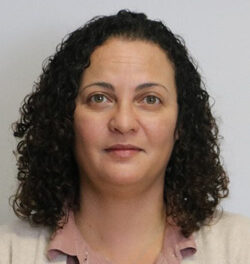
Countering fake news as the world fights the COVID-19 pandemic

By Shoki Kandjimi
[email protected].
We are in a time where the world is trying to find a vaccine for the novel COVID-19 pandemic that has installed so much panic and fear in people. Countries around the world have closed schools, universities churches. Other countries have now decided to take serious measures such as closing down their borders.
Moreover, many countries have enacted State of Emergencies to control the movements of their citizens as a means to curb the further spread of the virus.
However, the world is not only fighting the virus, but it is fighting fake news of which some have termed it an ‘infodemic’. In other words, we are busy fighting fake news and misinformation. It might sound light to some individuals but it is a serious issue particularly to those who are less educated and informed because they are unable to discern whether the information they received is factual or not. Therefore, I decided to write about this crucial issue.
Fake news has been making rounds on social media since the outbreak of the novel coronavirus early this year. There were claims such as ‘black people are not affected by the virus. This information was not true since no medical body such as the World Health Organisation (WHO) has made such a confirmation. The results of such assertions could cause havoc.
For instance, people might decide not to follow the prescribed measure of preventing the infection of the virus. That is why people should desist from spreading false information.
At such a time where people are panicking, they would believe anything because they might not have access to credible information. What worries me the most is the people who cannot discern whether the information that they receive is true. One thing that I have observed is that there are people on social media informing others that to prevent the infection of COVID-19 they should wear surgical masks and gloves. WHO has advised people not to wear these gloves because the virus can still travel from one place to another especially when you touch your mouth, nose or eyes?
I am sure you might be asking yourself, how will I distinguish whether the information I get is indeed factual or not? Actually, there are ways to spot fake news, such as looking at the writer of that content. Is he or she a trusted source of information or a journalist for instance? If this publisher is known and has written about such information in the past, he or she can be deemed as a credible source.
However, you should also check with other sources of information to see if they too have published content related to that of the publisher. It will then inform you if the information is factual.
Looking at the quality of an image or a graphic is a useful way of determining the authenticity of the information being disseminated. It is easy to tell when a graphic or an image has been distorted by comparing it with the previous images posted by the authentic source.
Furthermore, another easy approach of spotting fake news is the spelling and grammar employed in the content being circulated. If you come across such a story it should raise a red flag. A reliable source such as the media will always ensure that their sentence structure, spelling and grammar is precise. So it is advisable not to further promulgate such information.
In addition to that, another way you could detect fake news is the log on the document being shared. Is that logo of the relevant office that usually shares such content? You then need to make that distinction. Also, an official stamp with the correct dates can assist you in detecting fake news.
It is very important to note that it is not wrong to share information with others but this should be done with extra caution. We are in an era whereby anyone can share information and that is why you need to verify the information before disseminating it to your friends and acquaintance. I always advise people to think twice before pressing the share or forward buttons.
In South Africa, citizens are being arrested and prosecuted for spreading fake news. That should already send a message. That is why the seriousness of this issue cannot be overemphasised. We need to take it seriously and avoid it by all means. Fake news also hampers the efforts being made by health professionals fighting the COVID-19 pandemic. To ensure that our health professionals and government officials focus on their work, we need to refrain from spreading fake news.
The Ministry of Information and Communication Technology (MICT) in collaboration with other stakeholders launched the COVID-19 Communication Centre to provide factual information to curb fake news. Therefore, I urge you to listen to the National Broadcasting Corporation (NBC) and MICT’s social media platforms for accurate information about COVID-19.
Caption: Shoki Kandjimi is an Information Officer in the Ministry of Information and Communication in the Kavango East Region. He is also a Communication and Public Relations Specialist by profession. He writes in his own capacity.










































